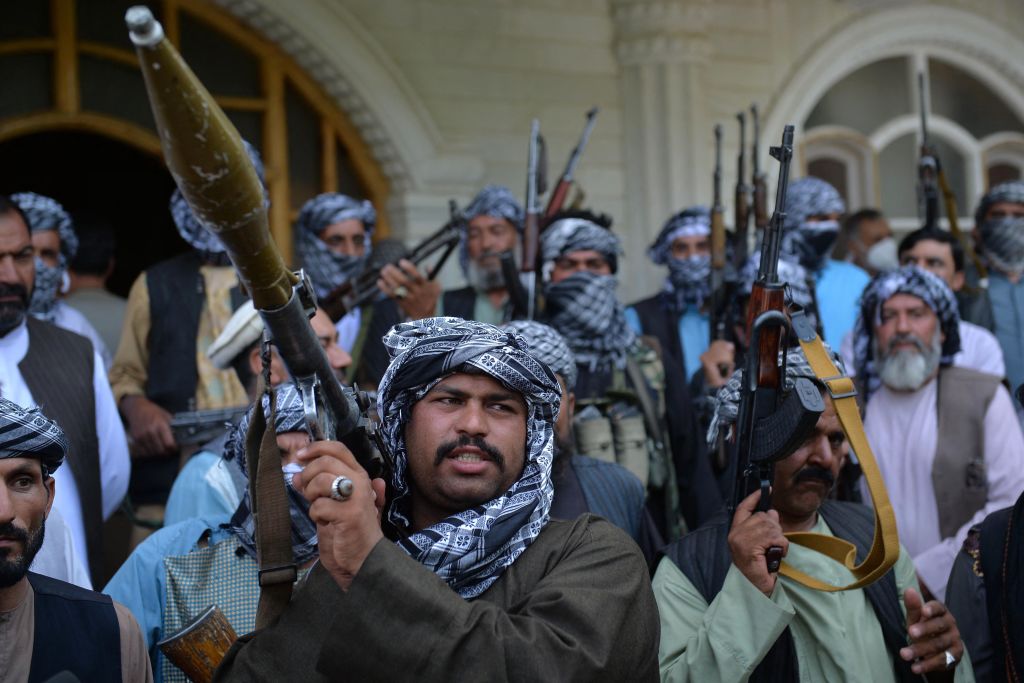A last-ditch effort to broker peace in Afghanistan will be made in the Qatari capital of Doha this weekend. A senior Afghan government delegation which includes Abdullah Abdullah, chair of the country’s High Council for National Reconciliation, and former national president Hamid Karzai will engage in talks with the Taliban. Afghanistan’s unending 42-year civil war has intensified with the imminent departure of western armed forces led by the United States.
This week a Pulitzer Prize-winning photojournalist with Reuters, Danish Siddiqui, was killed near the Spin Boldak border crossing between Afghanistan’s Kandahar province and the Pakistani region of Balochistan. He was apparently a victim of indiscriminate Taliban firing.
The Taliban captured power in Afghanistan a quarter of a century ago, before being ousted by the US after 9/11. President George W. Bush, who ordered the military invasion, did not finish the job — obsessed as he was with regime change and removing Saddam Hussein in Iraq. As a result the Taliban were not crushed as fully as they could have been. Also at fault was neighboring Pakistan, which having consented to fully cooperate with the US in the ‘war against terror’, allowed Taliban members to regroup and receive sanctuary across the border.
Two decades later — encouraged by the Pakistani establishment — the Taliban again pose a serious threat to the incumbent Afghan administration of President Ashraf Ghani, a former World Bank economist. The clock has painfully turned back 25 years.
The West in general and the US in particular were partly responsible for the emergence of Islamic extremists in Afghanistan. As millions of refugees fled to Pakistan after Soviet Union troops intervened to prop up a left-wing government in December 1979, American intelligence members injected the poison of religious fervor into the refugees.
Moscow retreated in the spring of 1989, leaving the Afghans to fight a bitter war between liberalism — men without beards and women in western attire — and Islamic revivalism. Since then, Afghanistan has become conservative at best, and maniacally bigoted at worst.
There’s triumphalism in Pakistan as it prepares for the Taliban, nurtured by the Inter-Services Intelligence army espionage wing, to take over Afghanistan again. Islamabad visualizes its victory over India, a country which is currently widely popular in Afghanistan after investing billions of dollars in developmental aid there over the past 20 years. Presidents Karzai and Ghani have unabashedly been pro-India and anti-Pakistan.
Pakistan has historically regarded Afghanistan as the perfect terrain for ‘strategic depth’ in the event of an imaginary Indian invasion, which is why it welcomes the idea of a Taliban takeover. But it is also worried about American blowback if it overtly engineers an overthrow, as it did in 1996 when the Taliban came to power. Prime Minister Imran Khan’s media adviser Raouf Hasan recently wrote in Pakistan Today that ‘the Kabul government cannot hang on to power indefinitely and the Taliban must realize the futility of a takeover through exercising brutal power.’
But the Afghan administration has repeatedly accused the Pakistani establishment of masterminding Taliban inroads into dozens of its districts, and even providing air cover for Taliban forces. One of Afghanistan’s vice-presidents, Amrullah Saleh, has accused Pakistan of warning the Afghan armed forces that if they pushed back the Taliban from Spin Boldak, Afghan troops would be ‘repelled’ by the Pakistan Air Force. Pakistan has denied the allegation and claimed it was responding to a threat to its air space.
In some of the areas the Taliban have taken charge, they have reimposed medieval practices. The insurrectionists have ordered men to go to mosque and women to stay at home. This is a reenactment of 1996.
How long can the Afghan National Army hold out? It is believed to enjoy numerical superiority of 350,000 to 200,000 over the Taliban, possess more potent weaponry and has the support of a limited air force to resist the religious diehards. When the Soviet military withdrew in March 1989, conventional wisdom anticipated an immediate collapse of the residual Mohammad Najibullah regime. But this did not happen until 1992.
The post-2001 generation of Afghans have tasted a modicum of modernity. You would hope, therefore, that the public is strenuously opposed to a return to an intolerant caliphate. Besides, the major powers may still intervene to prevent a Taliban takeover. Even China, which has dealt with Muslim Uighurs with a heavy hand and has considerable influence over Pakistan, could oppose Afghanistan’s degeneration and the destabilizing effect this would have on the region.
Though the US may be reluctant to put boots on the ground, intermittent aerial intercessions by the US from its bases in the Gulf cannot be ruled out. President Biden has honored his predecessor Donald Trump’s commitment to pull troops out of Afghanistan. At the same time the Taliban’s wanton disregard of promises it made during the September 2020 Doha deal is unlikely to go unpunished.
This article was originally published on The Spectator’s UK website.


















